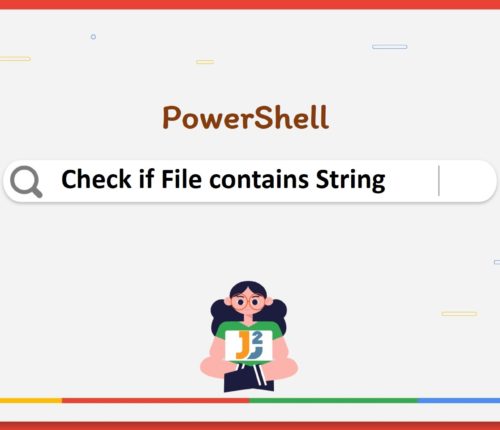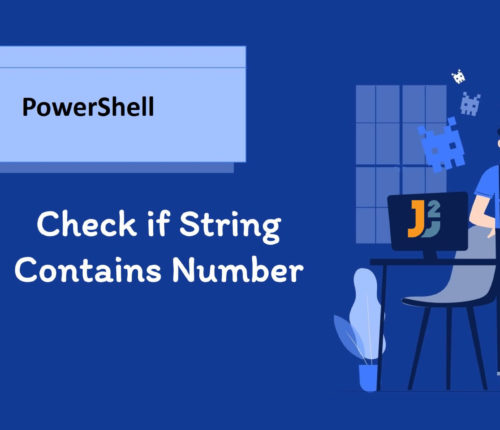PowerShell String


 16 April
16 AprilConvert String to Byte Array in PowerShell
Using System.Text.Encoding Class The System.Text.Encoding class converts the specified string to a byte array in PowerShell. This class can use a particular, default, or custom encoding format. Let’s see how we can use them. Use System.Text.Encoding Class with a Particular Encoding Use the System.Text.Encoding class with specific encoding to convert a string to byte array […]
 14 April
14 AprilPowerShell Check If File Contains String
Using Select-String Cmdlet Use the Select-String cmdlet to check if the specified file contains the given string in PowerShell. [crayon-69a54d30601b5494027055/] [crayon-69a54d30601bc728344502/] First, we declared and initialized a variable named $path containing the location of the file1.txt file. Then, we created another variable called $string and set its value with "customers"; this is the value we […]
 14 April
14 AprilPowerShell Convert Guid to String
💡TL;DR Use the ToString() method on System.Guid to convert a GUID to a string in PowerShell. [crayon-69a54d30604ea777707614/] [crayon-69a54d30604ee244392826/] Before diving into the solutions, let’s understand what GUID is. In PowerShell, a Globally Unique Identifier (GUID) is a 128-bit identifier used to identify objects uniquely—for instance, folders, files, registry keys, and other system resources. Remember, GUIDs […]
 10 April
10 AprilGenerate Random String in PowerShell
Using [System.Guid] Class To generate a random string in PowerShell: Create a globally unique identifier using the NewGuid() method. Use the ToString() method to transform the GUID (created in the previous step) to String format. Use the Write-Host cmdlet to print the random string. [crayon-69a54d30606a2965589653/] [crayon-69a54d30606a5430762024/] The New-Guid() is a static method of [System.Guid] class […]
 10 March
10 MarchPowerShell Array to String
Using Double Quotation Marks Use double quotation marks to convert array object to string in PowerShell. [crayon-69a54d30608bf056149794/] [crayon-69a54d30608c3102325652/] First, we created an array object and saved it in the $arrayObject variable; we can also create an array object using the array operator (@()), for instance, $arrayObject = @("How", "are", "you?"). Next, we enclosed the $arrayObject […]
 14 February
14 FebruaryCheck if String Contains Number in PowerShell
Using Regular Expression We use regular expressions whenever we are required to look for specific patterns in the text. The regular expressions, also known as regex, comprise operators, literal characters, and other constructs. PowerShell has various cmdlets and operators that allow us to use regex with them; some of them are given below: Using -match […]
